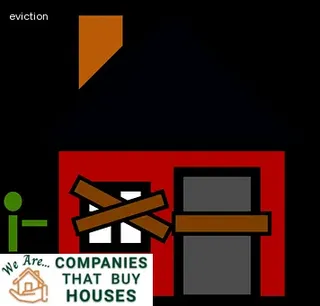When it comes to tenant damage to property in Illinois, it is important for landlords to understand their rights and responsibilities. It is essential for landlords to know what kind of tenant damage responsibility they have in order to protect their property and investments.
When entering into a rental agreement, it is important that both parties are aware of the terms and stipulations regarding damages caused by the tenants. In some cases, the landlord may be responsible for damages caused by a tenant if they fail to maintain the property in a habitable condition or do not abide by certain regulations or guidelines.
Additionally, landlords should be aware of their legal responsibilities when it comes to collecting security deposits from tenants. Security deposits can be used to cover any damages that occur during a tenant's stay on the property, but there are specific rules and regulations in place regarding how the security deposit must be handled and returned at the end of a tenancy agreement.
Lastly, landlords should also be aware of laws regarding evictions that can help them protect their investments if a situation arises where they need to terminate a tenancy agreement due to damages caused by a tenant. Knowing all of this information can help ensure landlords are well-prepared when dealing with issues related to tenant damage responsibility in Illinois.

When it comes to tenant damage to property in Illinois, understanding the difference between wear and tear and damage is critical for landlords. Wear and tear is a natural process that occurs over time, such as fading paint or flooring worn down through normal foot traffic.
On the other hand, damage is caused by intentional or unintentional acts that are outside of normal wear and tear. Examples of damage include large holes in walls, broken windows, and water stains from plumbing issues left unresolved.
In some cases, landlords may be responsible for repairing aspects of their property that have incurred normal wear and tear due to the age of the property; however, when it comes to tenant-caused damage, landlords are generally within their rights to seek reimbursement from tenants for repair costs. It's important for landlords to understand these distinctions so they can better protect their investments by taking appropriate action against negligent tenants who cause damage to their properties.
When a tenant has caused damage to property in Illinois and there is no lease agreement in place, it can be unclear who is responsible for paying for the repairs. In this situation, landlords have certain rights and obligations when it comes to recovering damages.
Generally speaking, the landlord may be able to hold the tenant accountable for any necessary repairs or replacement costs that are required due to damage caused by the tenant. Additionally, if the landlord has insurance to cover such instances, they may also be able to submit a claim which could compensate them for any necessary repairs or replacements.
Landlords should also keep in mind that if there is no lease agreement in place, they may not be able to collect additional funds from the tenant beyond what was originally paid as a security deposit and must instead rely on their insurance policy or other forms of coverage.

When a tenant damages property, as a landlord in Illinois, it is important to know what steps you can take to secure compensation. One of the most common methods used is to use a security deposit.
Security deposits are designed to cover unexpected expenses incurred by the tenant and can be used for non-payment of rent or damage caused by the tenant. By utilizing the security deposit, landlords can deduct from the deposit for any repairs necessary due to tenants’ negligence or damage.
It is important for landlords to review their lease agreement with their tenants carefully before signing, however, as some states may have limits on how much of a security deposit can be taken as payment for damages. After determining that an amount has been deducted from the deposit due to tenant damage, landlords should provide written proof of why they are taking such action.
This not only serves as an effective way to show that it was indeed the tenant who caused the damages but also demonstrates that proper procedures were followed in order to acquire compensation.
When it comes to tenant damage to property in Illinois, landlords need to consider how best to proceed. One important question is whether or not they should show tenants a breakdown of the cost of repairs needed due to any damage done.
This can be tricky, as it may be difficult for landlords to prove that the tenant was responsible for the damage and also be clear about which items need repair. Additionally, depending on the situation, a landlord may want to take into account whether their tenant is facing financial hardship or other challenges that may affect their ability to pay for such repairs.
It is important for landlords to understand the nuances of this particular situation and consider each case individually when deciding if they should provide a breakdown of repairs or not.

When the cost of repairs for tenant damage exceeds the security deposit, landlords must take extra steps to recoup their losses. Depending on the specific situation, it is possible for a landlord to take legal action against the tenant in order to receive compensation.
In Illinois, a landlord may file a lawsuit against a tenant and pursue damages if they are able to prove that the tenant caused intentional, negligent or reckless destruction of property. It is important to note that if a landlord seeks reimbursement through legal means, they must follow all state and local laws when pursuing eviction or other forms of action.
Additionally, it is best practice to document all damages and repair costs and keep detailed records throughout this process in order to ensure accuracy during any court proceedings. Finally, it may be beneficial for landlords in Illinois to familiarize themselves with any applicable statutes regarding tenant damage and security deposits before entering into rental agreements with tenants.
As a landlord in Illinois, it is essential to know the laws and regulations surrounding tenant damage to property. Unfortunately, learning the ins and outs of landlord-tenant law can be both time consuming and intimidating.
Fortunately, we've created a comprehensive e-book that outlines everything you need to know about tenant damage. This easy-to-follow guide provides all of the information you need to protect your property from potential damage and take legal action when needed.
You'll learn the key elements of tenant damage, including what constitutes as "normal wear and tear" versus intentional destruction or negligence; best practices for inspecting tenants' security deposits; ways to prevent damage before it starts; and how to handle situations where tenants are responsible for damages. Our e-book also provides step-by-step guidance on how to file a claim with your local court system, should you ever find yourself in a dispute with a tenant over damage.
Download our FREE e-book now for detailed information on tenant damage in Illinois, as well as invaluable tips for staying informed and protecting your investment.

When it comes to tenant damages, landlords in Illinois should be aware of their rights and responsibilities. Knowing what qualifies for insurance coverage is a key part of protecting your property from tenant damage.
In general, any direct physical damage caused by a tenant to the landlord's property will be covered under the appropriate insurance policy. This includes willful or accidental destruction of property, such as tearing down walls, breaking windows, or flooding due to plumbing issues.
Additionally, any losses incurred due to vandalism or theft can also be covered in most cases. Landlords should also understand that they may qualify for additional coverage depending on the circumstances of the incident and their specific insurance provider's policies.
It is important to read through your policy carefully and contact your insurer directly with any questions you may have about qualifying for tenant damage coverage.
When it comes to rental properties, the concept of normal wear and tear can be difficult to define. In Illinois, landlords must understand exactly what qualifies as normal wear and tear in order to protect their property from tenant damage.
Normal wear and tear is expected deterioration that occurs over time due to everyday usage, while tenant damage refers to any damage caused by the tenant beyond this natural wear and tear. For example, if a tenant was to paint a wall without permission or cause holes in the walls due to improper hanging of art, this would constitute tenant damage whereas a stain on the carpet from everyday use would not.
Landlords should also keep in mind that age-related issues are not considered normal wear and tear; for instance, if an appliance becomes outdated or breaks down due to its age, it is not considered normal wear and tear and should be fixed by the landlord (unless stipulated otherwise in the lease agreement). In addition, landlords should always document all existing conditions of the rental property before tenants move in order to ensure they are held responsible for any tenant damage at move out.

In Illinois, landlords are required to abide by certain laws regarding tenant damage to property. The state's Residential Landlord and Tenant Act outlines the rights of landlords when it comes to tenant damage and outlines the duties of tenants in regard to property maintenance.
It also contains provisions outlining what a landlord must do if a tenant has caused damage to the rental unit or other property. Additionally, any written lease agreement between a landlord and tenant should include language addressing a tenant's liability for damages, as well as any procedures for resolving disputes between the parties if an issue arises.
Further, under Section 9-107 of the Illinois Landlord and Tenant Act, landlords may be entitled to recover compensation from tenants if they have suffered financial losses due to tenant damage. Finally, landlords in Illinois should be aware that they may be held liable for certain types of damages caused by a negligent tenant, even if an agreement has not been made.
Ultimately, understanding the laws governing tenant property damage in Illinois is essential for all landlords operating within the state.
In Illinois, landlords have a legal obligation to maintain their rental properties and ensure that they are safe and livable. When a tenant causes damage to the property, the landlord may be able to seek damages from the tenant in some cases.
However, there are certain circumstances in which landlord negligence can be a factor in property damage claims. For instance, if the landlord failed to make necessary repairs or failed to provide adequate security for the premises, then it is possible that any damage caused by the tenant could be attributed to this negligence.
Furthermore, if a landlord does not properly screen tenants or fails to take action when issues arise, such as allowing dangerous activities on their property or failing to address complaints about noise or other hazards, then they could potentially be held liable for any resulting damage. Therefore, it is important for landlords in Illinois to understand their responsibilities and ensure they meet all of their obligations to ensure that any potential damages are not attributed back to them.

As a landlord in Illinois, it is important to understand your rights when it comes to damage caused by tenants. In some cases, landlords may be able to recover costs associated with repairs and replacements due to tenant damage.
In other instances, the law may specify that the tenant is responsible for certain damages. Understanding when and how you can seek reimbursement from your tenant is key to minimizing potential losses as a landlord.
Depending on the type of property and how long the tenant has been living there, the process for recovering repair costs may vary. For example, if a tenant has been living in an apartment for more than five years, they may be subject to additional restrictions if they cause damage beyond normal wear and tear.
It is also important to note that landlords are legally required to provide habitable housing for their tenants, so any damages must be dealt with promptly in order to remain compliant with state laws. Knowing your rights when it comes to repair costs from tenant damage will help protect you as a landlord and ensure that you are not left footing the bill for damages caused by your tenants.
In Illinois, it is important for landlords to understand their rights and obligations when it comes to tenant damage to their property. Fortunately, there are a number of resources available that can help landlords navigate the process of resolving disputes related to any damage done by tenants.
The Illinois Property Management and Leasing Act outlines the responsibilities of both landlords and tenants regarding landlord-tenant relationships, which serves as a useful starting point for understanding the ins and outs of rental property damage in Illinois. Additionally, the Tenants’ Rights Guide provides clear information on what a landlord must do in order to evict a tenant if they cause more than $50 worth of damage or fail to pay rent.
Finally, the Landlord-Tenant Handbook is an invaluable resource that explains how best to handle repairs and other issues related to tenant-caused damage. With these resources at hand, landlords can stay informed about their rights and obligations when it comes to dealing with rental property damage in Illinois.

As a landlord in Illinois, it is important to be aware of the potential for tenant damage to property. Knowing how to prevent tenant damage and what steps to take if it does occur can help you protect your investments.
The best way to avoid costly property damage is to properly screen tenants before signing a lease. Taking the time to look into an applicant’s background, credit, job status, and rental history can help you make an informed decision about their reliability as a tenant.
Regular inspections of the property are also important; this will allow you to identify any signs of possible damages early on and address them before they become more serious. Additionally, providing clear expectations for tenants in the lease agreement and communicating with tenants regularly can help ensure that your property remains in good condition throughout the duration of their occupancy.
Lastly, having an emergency contact plan in place in case something does go wrong will ensure that damages are dealt with swiftly and efficiently. Taking these proactive steps can help landlords protect their investments from unnecessary losses due to tenant damages in Illinois.
When it comes to tenant damage to property in Illinois, landlords need to be aware of their rights and obligations. In order to protect themselves from liability for health & safety issues caused by tenant property damage, landlords must understand the relevant regulations.
These regulations vary depending on the type of property that is being rented out. For instance, if a landlord rents out a house or apartment, they must follow the guidelines set by their municipality regarding health & safety inspections and repairs.
Landlords must also adhere to federal laws such as the Fair Housing Act, which provides tenants with protections against discrimination in housing matters. Additionally, landlords should investigate any damage caused by tenants and take steps to repair or replace any damaged property promptly.
Finally, landlords should keep detailed records of all repairs and maintenance done on rental properties in order to prove that they have taken appropriate action when necessary. By understanding and following these guidelines, landlords can ensure they are protecting themselves from potential liabilities due to tenant damage to property in Illinois.

If a landlord and tenant in Illinois cannot agree on compensation for damage to property, the landlord may need to take legal action in order to receive reimbursement. The first step is to review the lease agreement and determine if any specific language applies that would require the tenant to pay for damages.
After reviewing the lease agreement, if necessary, landlords can file a lawsuit in their local county court against the tenant and seek monetary damages. In some cases, landlords may be able to pursue a claim for actual damages plus additional costs such as attorney's fees or court costs.
Additionally, depending on the nature of the damages, landlords may be able to bring an action for possession or eviction of the tenant if they are unable or unwilling to pay for damages caused by them. Ultimately, filing a lawsuit is often necessary when there is not an agreement between landlord and tenant regarding damage caused by tenants in Illinois.
One of the biggest concerns for landlords in Illinois is understanding their rights and responsibilities when it comes to property damage caused by tenants. To help landlords navigate this complex issue, here are some frequently asked questions about tenant damage to property in Illinois.
For starters, what kind of damages can a tenant be liable for? Generally speaking, a tenant is liable for any intentional or negligent causes of property damage that occur during the tenancy, including fire, water damage, vandalism, and more. Additionally, landlords can also hold tenants responsible for any third-party damages that occur on the rental premises while they are living there.
How much is a tenant responsible for? The amount depends on the type of damage and how much it costs to repair or replace the damaged property. In most cases, tenants will be required to pay the full cost of repairs or replacements up to the security deposit amount that was paid at move-in.
Is there anything a landlord should do prior to filing a claim against a tenant? Yes – before filing a claim against a tenant in Illinois, landlords must ensure they have followed all applicable state laws regarding proper notice and communication with their tenants. This includes providing written notice before collecting damages from them and giving them an opportunity to respond or repair any damages before legal action is taken.
What happens if the security deposit does not cover all of the damages? Landlords may assess additional charges against the tenant’s credit report if necessary. However, it’s important to remember that no matter what happens with tenant liability for property damage in Illinois, landlords must always make sure they are following all applicable laws and regulations when dealing with these issues.

In Illinois, landlords often face the difficult task of dealing with tenant damage to their property. Common scenarios that occur include tenants failing to pay for repairs, refusing to make repairs, or damaging the property intentionally.
In some cases, renters may withhold rent until repairs are made or may leave a property in disrepair before moving out. It is important for landlords to document any damage caused by tenants and have a clear policy in place so they can take action if necessary.
Understanding the state laws and regulations regarding tenant damage can help protect both parties involved in a rental agreement. Knowing the legal repercussions of tenant damage can help landlords ensure that they are making the right decisions when it comes to protecting their property and ensuring that tenants follow the rental contract.
As a landlord in Illinois, it is essential to be aware of the potential for tenant damage to property. It is important to have a plan in place when managing rental properties.
Knowing the state laws and regulations governing tenant damage can help protect your investment. Expert advice suggests that landlords should take steps to prevent tenant damage by providing detailed lease agreements and conducting thorough move-in inspections.
Furthermore, landlords must understand the process for filing damage claims with their insurance companies and how to assess the extent of tenant damage. In addition, landlords should consider methods for minimizing the impact of tenant damage, such as repair or replacement options and security deposits.
Being knowledgeable about these issues can help landlords effectively manage property damages caused by tenants in Illinois.

In Illinois, landlords have certain legal rights and responsibilities when it comes to tenant property damage. It is important to be aware of the relevant state laws that govern landlord-tenant relationships in order to protect both parties.
Tenants must maintain their rental units in good condition and cover any damages that occur to their property due to neglect or misuse. On the other hand, landlords are obligated to provide a safe, habitable living space for their tenants and should not unreasonably withhold funds from a tenant's security deposit if they cause damage.
Both tenants and landlords should be familiar with state laws regarding liability for tenant damage so they can make informed decisions about how to handle any disputes that arise. Understanding the various forms of compensation available for property damage, such as repairs or replacement costs, will also help both parties negotiate a fair agreement that works for everyone involved.
Yes, a landlord can sue for damages in Illinois if a tenant has damaged property. When it comes to tenant damage to property, Illinois landlords must be aware of the state's laws and regulations that govern the situation.
A thorough understanding of the applicable statutes and ordinances is essential for landlords to protect themselves from potential liability and determine how to seek financial recourse when necessary. The Ultimate Guide To Tenant Damage To Property In Illinois: What Landlords Need To Know provides a comprehensive overview of the relevant rules and regulations, along with detailed steps on how to initiate a lawsuit should damage occur.
This guide can help landlords understand their rights and obligations when dealing with tenant damage to their property in Illinois, giving them peace of mind that they are adequately protected.

In Illinois, landlords must charge tenants for damages within 30 days of their move-out date. Tenants should be aware that they are liable for any damage incurred to the property during the duration of their lease and will be held responsible for any costs associated with repairing or replacing damaged items after vacating the premises.
It is important for tenants to understand this timeline so that they can ensure they are not charged for something that happened prior to their tenancy or after their move-out date. Furthermore, landlords must provide proof of damage to the tenant before charging them for any repairs or replacements, and must also communicate in writing how long after tenant move-out they can charge them for damage.
This information is vital for tenants to know when signing a lease agreement and living in a rental unit in Illinois. Ultimately, understanding the Ultimate Guide To Tenant Damage To Property In Illinois: What Landlords Need To Know is essential in order to avoid being charged unfairly and protect oneself as a tenant.
Under Illinois tenant law, tenants are responsible for making repairs to the rental property they occupy. Landlords should be aware that it is their responsibility to make repairs to essential services, such as plumbing and electricity, unless the cause of damage can be traced directly back to the tenant's negligence or abuse.
Tenants are also required to keep the premises in a clean and safe condition and must pay for any damages caused by their negligence or abuse. In addition, if a tenant fails to make necessary repairs or maintain cleanliness, landlords can withhold rent until the issues are corrected.
It is important for landlords to understand their rights and responsibilities under Illinois tenant law in order to protect their property from potential damages caused by tenants.
In Illinois, landlords must abide by a set of rules and regulations for deducting money from a tenant's security deposit. A landlord can only charge for damages that go beyond normal wear and tear, such as holes in walls or carpet damage.
They are also allowed to charge for unpaid rent or utility charges that the tenant was responsible for but never paid. If any of these deductions directly relate to the damage caused by the tenant, then the landlord is allowed to charge the tenant for those costs.
Furthermore, if there are moving costs associated with a tenant's move-out, then they may be able to deduct those costs too. Landlords should always provide written proof of incurred expenses that they intend to deduct from the security deposit before making any deductions.
As per Illinois law, landlords must return any remaining security deposit balance within 45 days after a tenant moves out.